1. The Power of the Full Moon

In many small towns, the full moon is seen as a time when strange events are more likely to occur. Some believe that the moon has the power to influence human behavior, with people becoming more impulsive or emotional. Whether it’s a surge of energy or heightened tensions, the full moon brings a unique atmosphere that’s hard to ignore.
Locals will often joke about the “crazy things” happening during a full moon, from strange accidents to unexpected behavior. It’s a superstition that has endured through generations, with many still attributing odd occurrences to the lunar phase. You might hear someone say, “It must be the full moon,” when things start to feel a bit out of the ordinary.
2. Horseshoes Above the Door
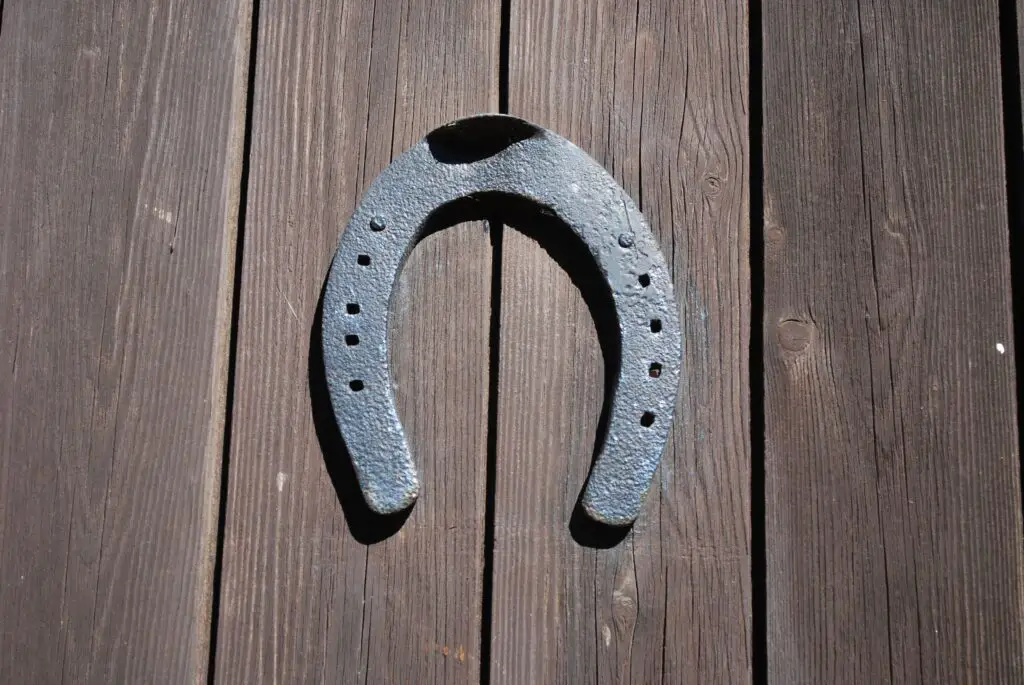
Hanging a horseshoe above the door is a classic superstition that still holds sway in small-town America. It’s believed that the horseshoe brings good luck and protects the household from evil spirits. While the horseshoe should be hung with the open end facing upward to catch good fortune, there are variations depending on the region.
In some areas, the horseshoe is placed over the front door as a symbol of hospitality and good fortune for anyone who enters. In others, the superstition focuses on warding off negative energy or even protecting the home from natural disasters. No matter the specific belief, the presence of a horseshoe often brings comfort to those who still hold this tradition close.
3. Black Cats Crossing Your Path
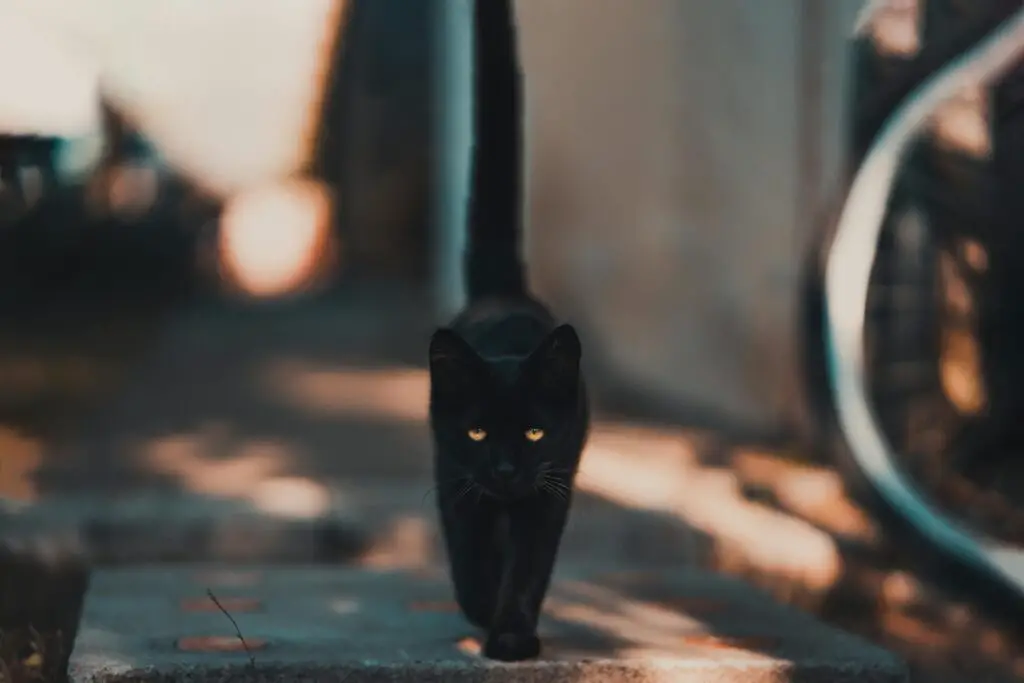
While black cats are loved by many as pets, they’re also infamous for being associated with bad luck in small towns across the country. The superstition dates back to medieval times, where black cats were often thought to be witches’ familiars. For some, it’s still a dreaded omen if a black cat crosses their path, especially if it’s a solitary feline.
The superstition varies slightly depending on who you ask. In some regions, a black cat crossing your path is considered a bad sign, while in others, it’s believed to be a harbinger of good luck—if you react the right way. Regardless of the interpretation, this belief is still alive and well, with folks often making a quick gesture to ward off the supposed bad energy.
4. Throwing Salt Over Your Left Shoulder

Spilling salt is seen as a bad omen in many small towns, but there’s a simple remedy to reverse the misfortune. According to superstition, if you spill salt, you should throw a pinch of it over your left shoulder to ward off bad luck. This belief is rooted in the idea that the devil is always lurking over your left shoulder, so throwing the salt there blinds him and protects you.
In some areas, people take this superstition very seriously, carrying around small packets of salt just in case. It’s common to see someone who’s spilled a little salt quickly making the gesture, hoping to avoid any bad luck from the mishap. It’s one of those superstitions that has a surprisingly strong hold on everyday life.
5. Walking Under Ladders
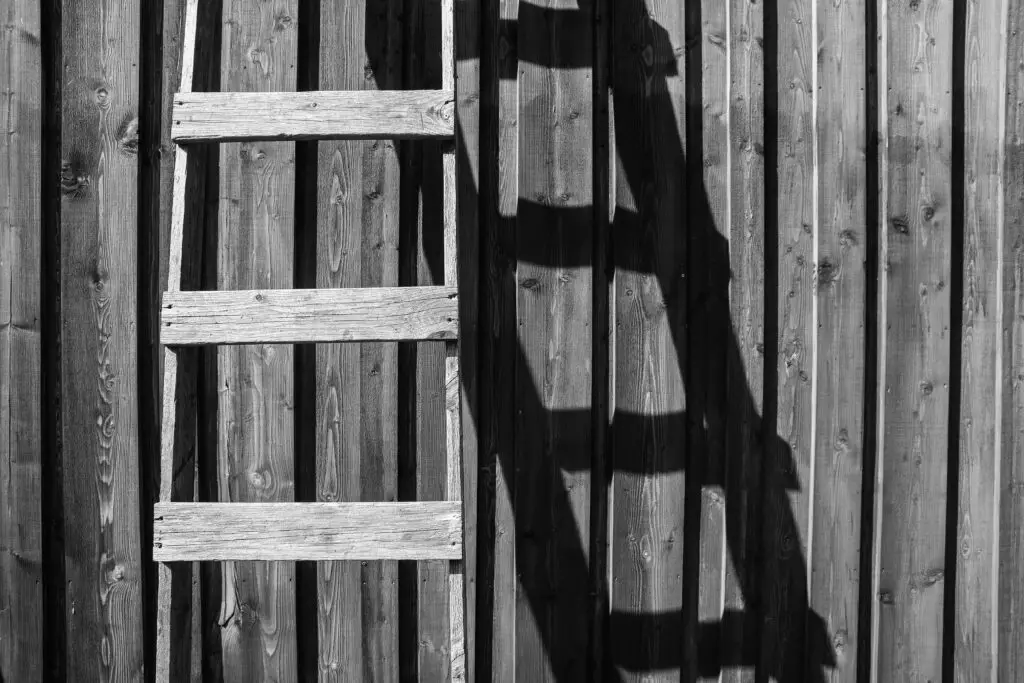
The superstition surrounding ladders dates back to ancient Egypt, where the triangular shape of a ladder leaning against a wall was thought to represent the Holy Trinity. Walking under a ladder was seen as disrespecting this divine symbol and inviting bad luck into your life. Even today, many people in small towns avoid walking under ladders, even if it’s just a passing glance.
The belief has spread beyond its religious roots, with people also associating walking under a ladder with accidents or misfortune. Some towns even have common sayings like, “Don’t walk under ladders, or your luck will run dry.” Whether it’s the risk of a falling tool or the sense of defying a sacred symbol, this superstition continues to shape behavior.
6. The Number 13

The number 13 is often associated with bad luck, and in small-town America, its influence can still be seen. Many buildings skip the 13th floor entirely, labeling it as the 14th to avoid the supposed misfortune. On the streets, houses with the number 13 are sometimes thought to be unlucky, with some locals refusing to live in them.
The fear of 13, known as triskaidekaphobia, is so strong that some towns even avoid planning events or weddings on the 13th of the month. Despite being a deeply ingrained superstition, there are also towns where 13 is viewed more positively, often as a lucky number. It’s one of those superstitions that depends on who you ask, but it definitely lingers.
7. Wishing on a Star

If you’ve ever been in a small town during a clear night, chances are someone’s wished on a star. This tradition has its roots in ancient beliefs that stars were gods or spirits that could grant wishes. It’s still common in many towns to make a wish when a star falls or when you see the first star appear in the evening sky.
While some towns take it more seriously than others, the idea of wishing on a star persists in local culture. Whether it’s for love, luck, or personal success, it’s a tradition that holds a lot of sentimental value. There’s something about the magic of a star that makes the superstition feel both timeless and hopeful.
8. Bad Luck on Friday the 13th
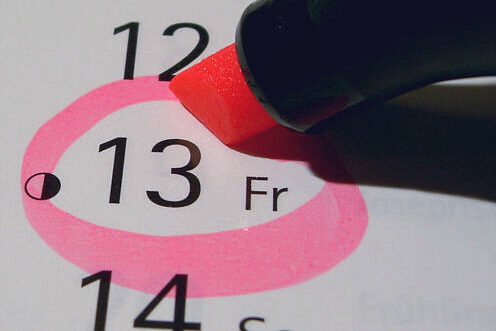
While the number 13 carries its own reputation, Friday the 13th holds an even greater stigma in many small towns. This particular day is often seen as an especially unlucky time when misfortune is more likely to strike. From car accidents to lost opportunities, many people stay home on this day, avoiding important decisions or events.
This superstition is so deeply ingrained that some people refuse to take risks or travel on Friday the 13th, as they believe the odds of something going wrong are simply too high. Others are careful about what they do on this day, making sure to take extra precautions. The reputation of Friday the 13th continues to shape behavior in small-town communities across the country.
9. The Broom at the Door

In many small towns, placing a broom behind the door is believed to keep bad spirits and evil away. It’s thought that the broom, often used for sweeping away dirt and negativity, has the power to protect a home from any ill will. Some even say that a broom can ward off sickness or bad fortune if positioned just right.
While some view this as a harmless superstition, others believe it’s an essential part of their home’s energy. The superstition has become so ingrained in certain towns that you’ll find brooms subtly placed behind doors, often as a quiet sign of protection. Whether or not it works is up to the individual, but many folks don’t take chances when it comes to the broom at the door.
10. Rain on a Wedding Day

Though it’s often considered a romantic gesture in literature, rain on your wedding day is seen as a sign of misfortune in small-town America. Many believe that if it rains on the day of your wedding, it foretells marital struggles or bad luck. To avoid this, some couples schedule their weddings around seasons or months that are less likely to see rain.
Still, there are others who try to make the best of it, treating rain as a cleansing force that will purify the marriage. Regardless of the spin, the belief that rain on your wedding day is unlucky persists. It’s one of those superstitions that keeps couples on their toes, wondering whether they’re in for a stormy future or simply a blessed one.
11. Whistling Indoors

It’s considered bad luck to whistle indoors in many small towns. This superstition comes from the belief that whistling inside could invite evil spirits or misfortune into your home. In some places, people believe that the sound of whistling in an enclosed space opens a gateway for unwanted forces to enter.
Whether it’s due to the sound reverberating or the symbolism of calling attention to oneself, whistling indoors is widely discouraged. Some even believe it might lead to unexpected financial loss or bad health. Despite the lack of scientific backing, the superstition persists, keeping people from letting out a simple whistle in their own homes.
12. Finding a Four-Leaf Clover
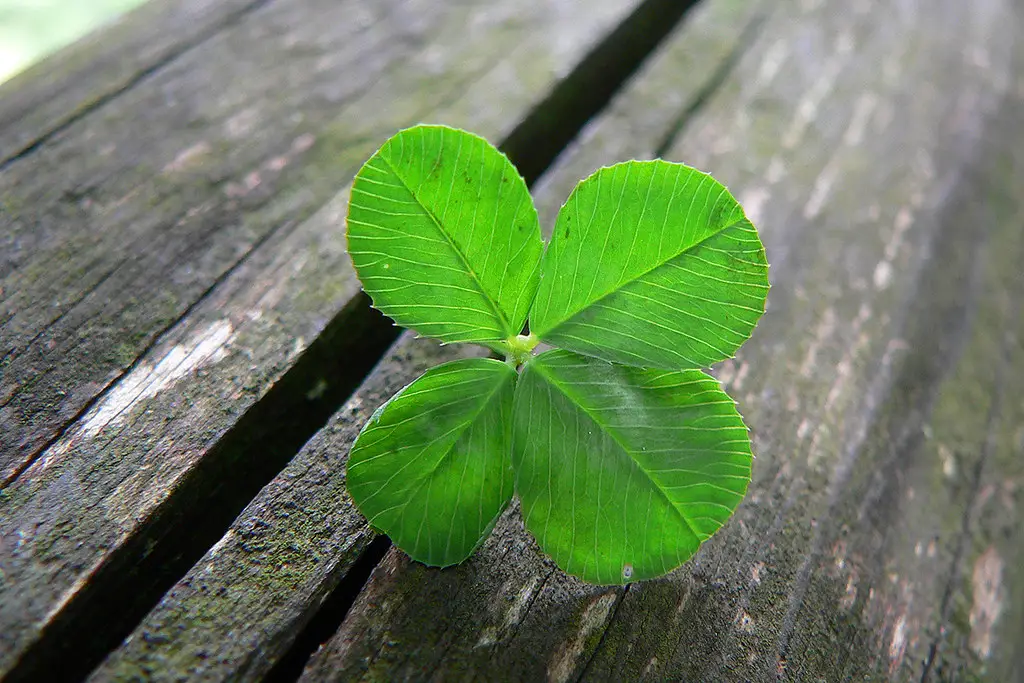
While many people believe that finding a four-leaf clover is a lucky event, small-town superstition often places even more weight on this rare find. The four-leaf clover is said to bring unparalleled luck and protect its finder from negative forces. Some towns still hold ceremonies or rituals that revolve around finding this prized plant.
The superstition also ties into beliefs of prosperity, love, and success. Many people keep a pressed four-leaf clover for years as a personal talisman. The search for the elusive plant is often seen as an act of fate, with those who find one believing they are bound for good things ahead.
13. The Witching Hour
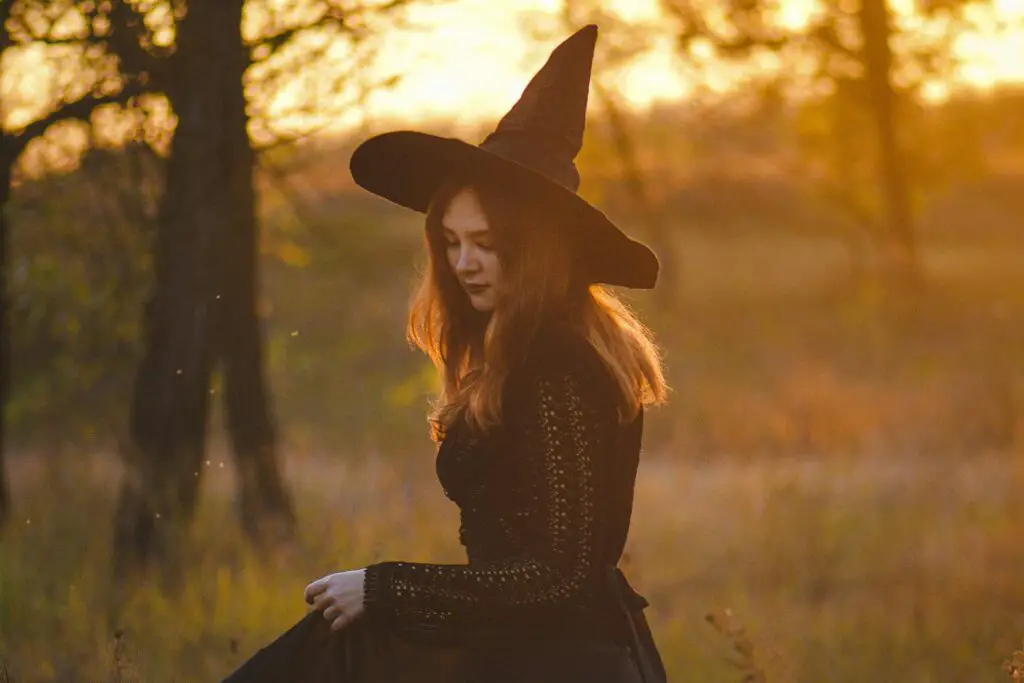
Midnight, often called the “witching hour,” is a time in small towns when people believe that supernatural forces are at their most powerful. It’s the hour when spirits are said to roam freely, and dark magic is believed to be most potent. In certain areas, people still avoid going out after midnight, fearing what might be lurking in the shadows.
The belief in the witching hour connects to older traditions and tales about witches and demons who are said to perform their most powerful rituals at this time. Some even make sure to lock all doors and windows by midnight to prevent any uninvited guests. The witching hour superstition remains a subtle but eerie influence on nightly routines in many small towns.
14. Sweeping Your Feet
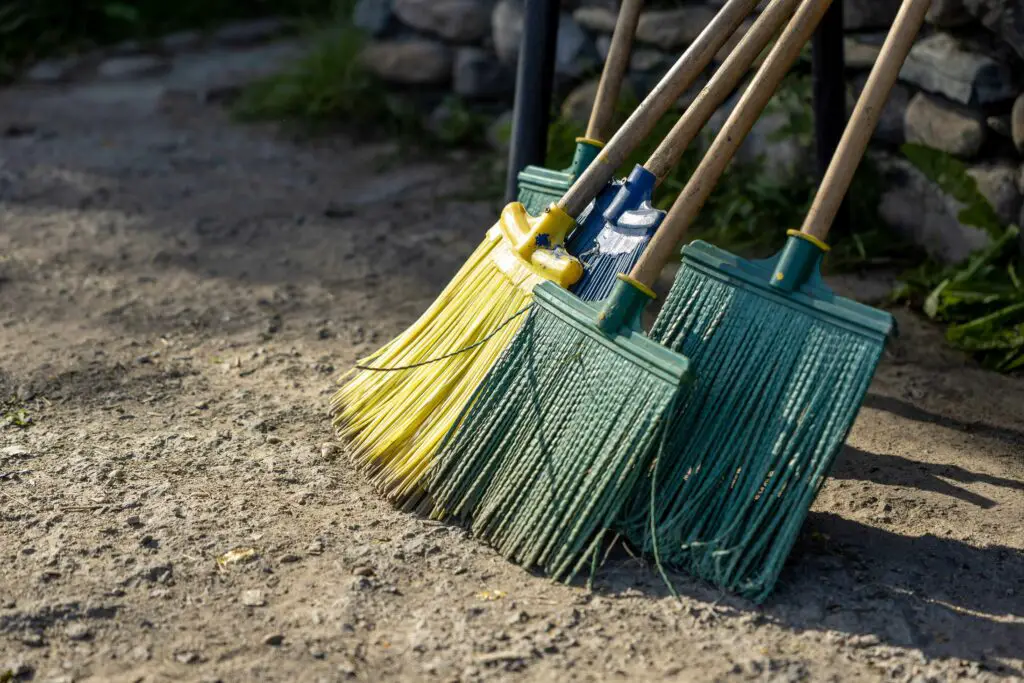
In several small towns, sweeping someone’s feet with a broom is thought to bring bad luck or even prevent them from getting married. This superstition is based on the idea that sweeping the feet of a person sweeps away their good fortune, potentially causing delays or obstacles in their future. To avoid this, most people are careful not to let a broom touch their feet.
If it happens by accident, the remedy is simple: you must spit on the broom or sweep it away to reverse the bad luck. It’s a quirky superstition, but one that’s deeply ingrained in small-town culture. Even today, people are cautious when it comes to this particular superstition, always careful not to let a broom unintentionally cross their path.
15. Crows as Omens

Crows are often seen as omens, and in many small towns, a large group of crows is thought to predict something significant—either good or bad. Some believe that a single crow is a harbinger of death, while others see them as symbols of wisdom. The superstition about crows can be a bit unsettling for those who are superstitious, especially when they’re seen gathering in large numbers.
For some, the crows are a reminder to be cautious or take extra care, while others see them as a sign that change is coming. This belief is so pervasive that it’s not uncommon to hear people remark, “Watch out, the crows are here,” when they appear. Whether it’s a warning or a sign of things to come, the superstition around crows continues to make its mark on small-town folklore.
16. Spilling Water Behind Someone

Spilling water behind someone is often considered a bad omen, especially in small towns. It’s thought to cause the person being “watered” to have bad luck or experience misfortune soon after. Some even believe that it can cause their relationships to fall apart or their career to stall.
In order to reverse the bad luck, the person who spilled the water must immediately apologize or offer to help clean up. The superstition may seem a bit unusual, but it’s something that people take seriously in these close-knit communities. A simple spill could end up being the subject of gossip for weeks.
